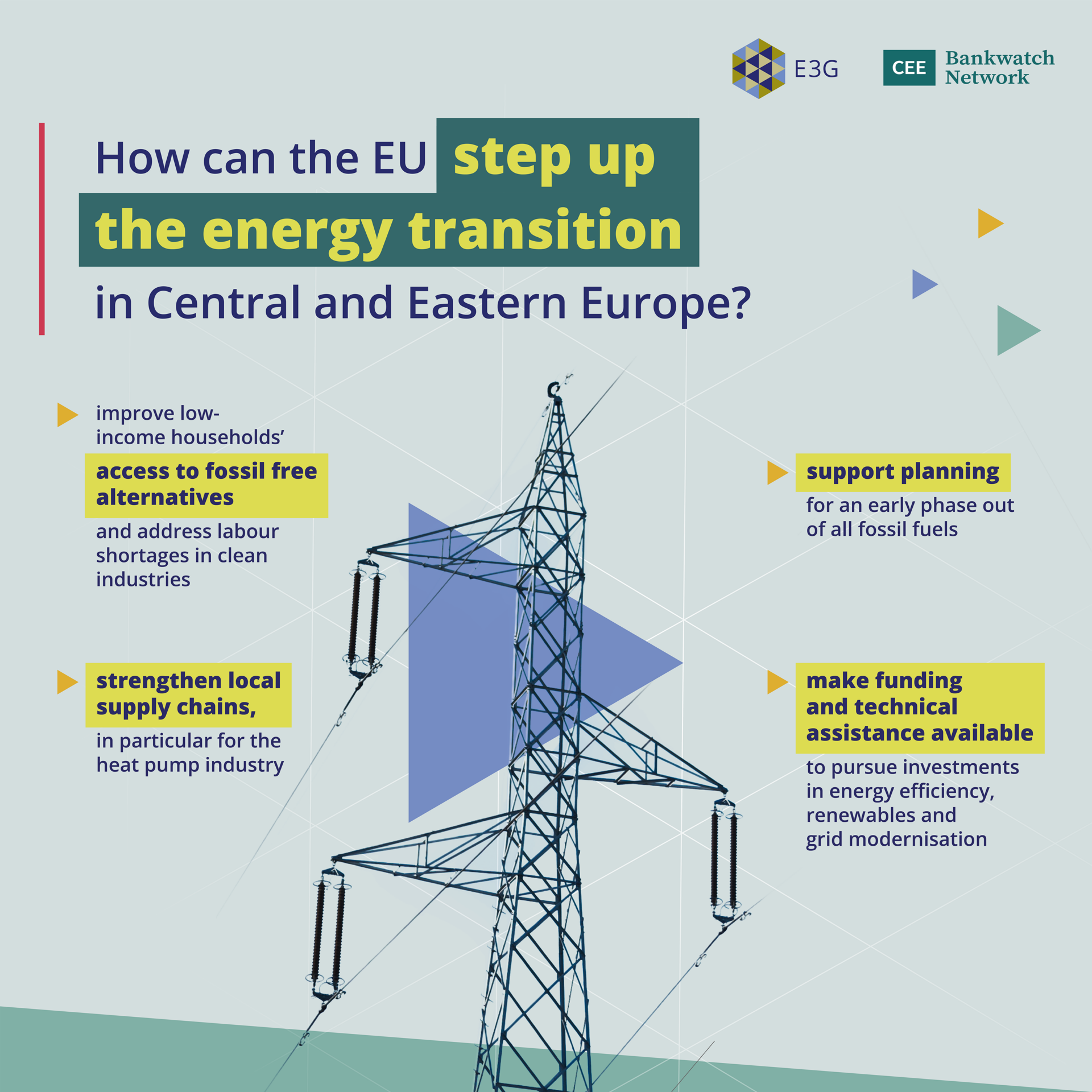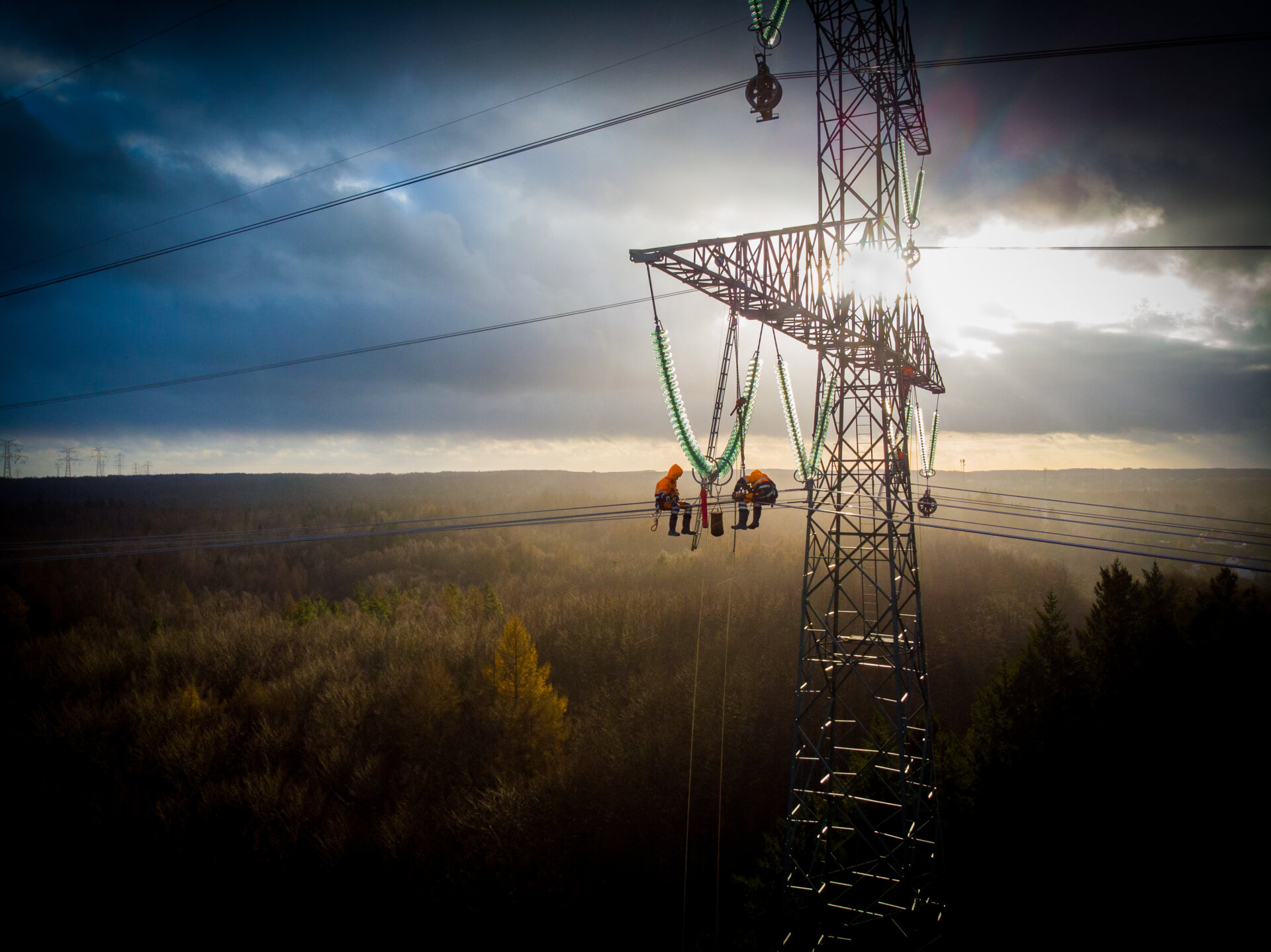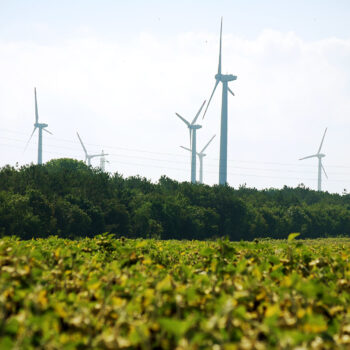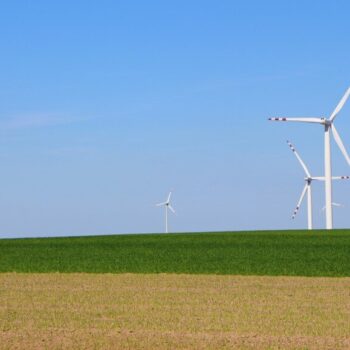Countries in Central and Eastern Europe (CEE) have long been regarded as laggards in the EU clean energy transition. The European Green Deal, and its approach of combining a lift in climate ambition with new financial and other support instruments, has however started to change this picture. A new European Commission should now build on progress made and step up its support for the energy transition in CEE countries.
The CEE region is particularly critical to the success of the EU’s energy transition, security and competitiveness. It accounts for 17% of EU electricity demand and has significant potential for increased renewables and energy efficiency measures.
While significant progress has been made in CEE countries, overall the region still lags behind EU averages and targets. Challenges to rollout of renewables in CEE include continued high reliance on fossil gas in some countries, and strong political support for nuclear. These positions are heavily shaped by global powers like China and the US, with support for renewables largely absent in these settings.
The new EU cycle presents the EU with the opportunity to engage with CEE countries and seek to build on the progress made so far. The EU should ensure the next phase of the European Green Deal creates the conditions needed for further accelerating the energy transition in Central and Eastern Europe.
Supporting the energy transition in Central and Eastern Europe
This report from E3G and CEE Bankwatch Network analyses the progress made in eight CEE countries over the last five years. It finds that in particular the EU’s Recovery and Resilience Facility (RRF) often helped support commitments and plans to phase out fossil fuels like coal. Prosumers – private households with wind and solar installations – have also played a key role in growing renewables.
Additional areas the EU should now seek to support to tackle the energy transition in Central and Eastern Europe include:
- Social measures to improve low-income households’ access to fossil free alternatives and address labour shortages in clean industries.
- Investments in grid expansions and modernisation.
- Stronger local supply chain, in particular for the heat pump industry.
- Social civil society participation.
- More technical assistance.

This report was jointly written by E3G and CEE Bankwatch Network. Christophe Jost is Senior EU Policy Officer at CEE Bankwatch Network.


